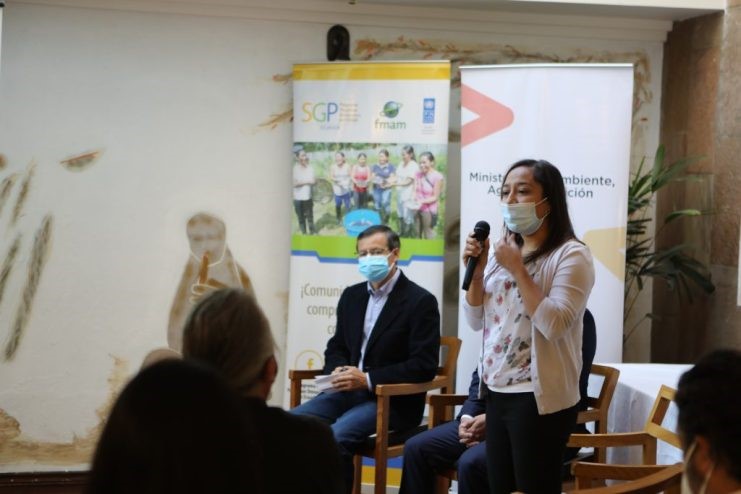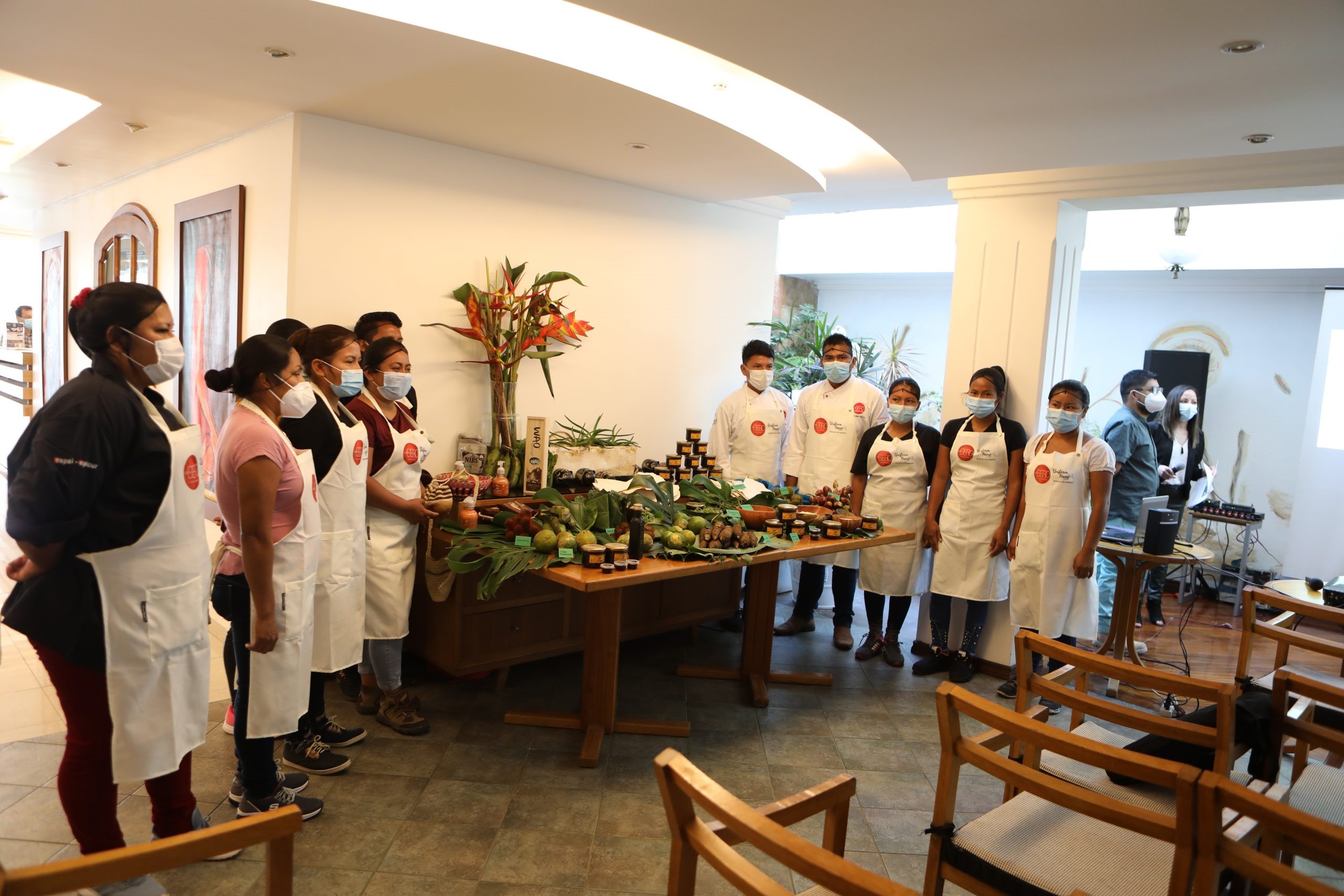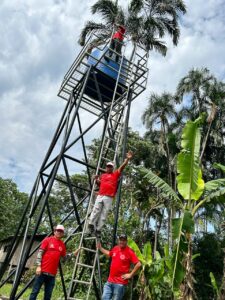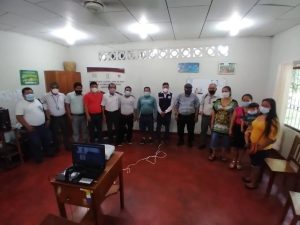On Wednesday, July 21st, the «United for the Kitchen» (UNICO) course was inaugurated at the «El Salnés» restaurant. Fundación Raíz Ecuador – Caemba is responsible for supporting six scholarship recipients from the Siona and Siekopai indigenous nationalities of Sucumbíos who are currently participating in this gastronomic training as part of the project «Conservation of Biodiversity through Bioentrepreneurship in the Northern Amazon.»
A total of 11 scholarship recipients are undergoing training in Quito. The five recipients not under the supervision of Fundación Raíz belong to the Ai Cofán – Sinanwe and Kichwa indigenous nationalities and are under the supervision of the Centro Lianas Foundation.
The aim of this scholarship is to train young individuals in the field of gastronomy, focusing also on leadership, entrepreneurship, sustainable production, and financial education. They will remain in Quito until August 13th, undergoing training and showcasing their bioentrepreneurship initiatives.
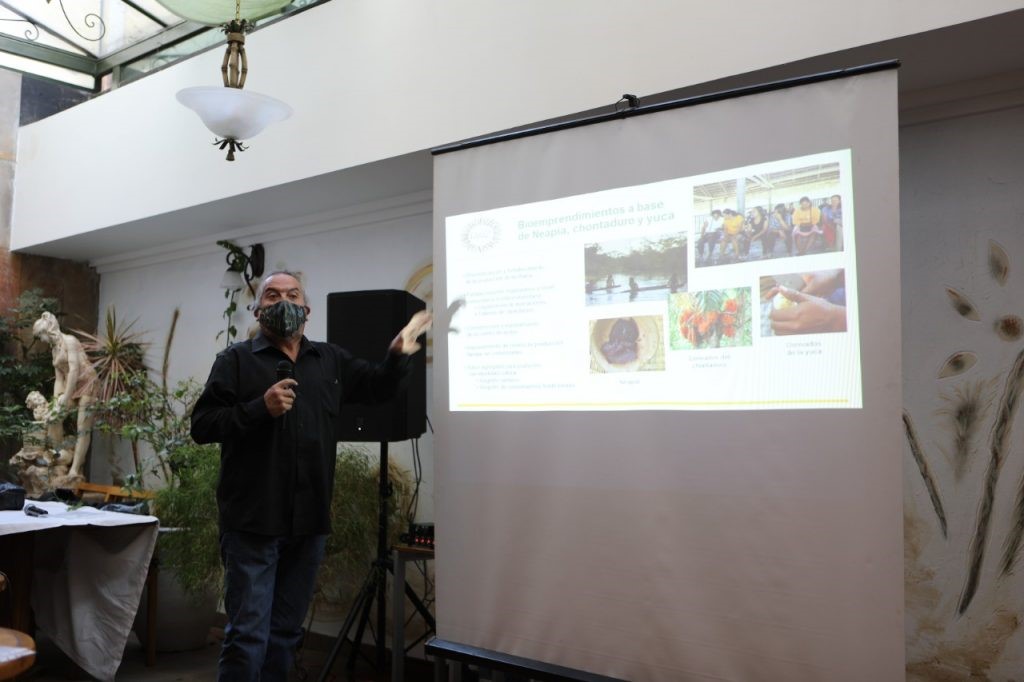
The Executive Director of Fundación Raíz Ecuador – Caemba, Pablo Yépez, presented on the project at the event.
The Ministry of the Environment, Water, and Ecological Transition (MAATE), through the Protected Areas Management Support Project (PASNAP) and the Small Grants Program (PPD) of the United Nations Development Program (UNDP), finances the bioentrepreneurship project, in which the «United for the Kitchen» (UNICO) initiative will be implemented, with the aim of training representatives from various communities in Sucumbíos on the aforementioned topics.
The consolidation of the operation will be achieved through the financing of bioentrepreneurship and the consolidation of local processes for conservation, sustainable use of biodiversity, and the strengthening of local capacities. The event was attended by the Executive Director of Fundación Raíz Ecuador – Caemba, Pablo Yépez; Pablo Druet, manager of the SNAP support program; Alexandra Narváez, president of the Ai Cofán – Sinanwe Women’s Association, who emphasized that «it is very gratifying to be here, as this gastronomy workshop will allow us to support our communities, showcasing our crafts, typical dishes, and promoting tourism, which is our biggest dream.»
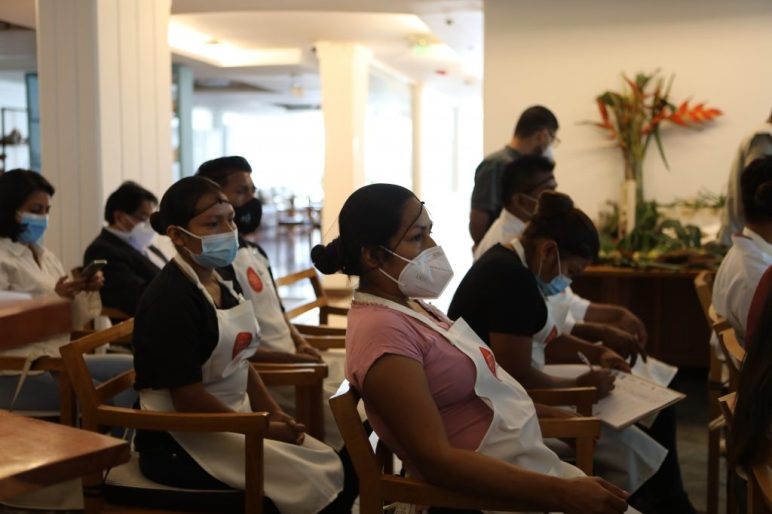
The trainees listen to part of the training at the «El Salnés» restaurant in Quito.
Apart from Raíz and Centro Lianas, the project involves Espai Epicur and Canopy Bridge, which, due to their experience and previous work in the Amazon and their direct relationship with representatives of local communities, peoples, and indigenous nationalities, manage activities related to product transformation, value addition, implementation of strategies for the dissemination and commercialization of community bioentrepreneurship, as well as the strengthening of local capacities.
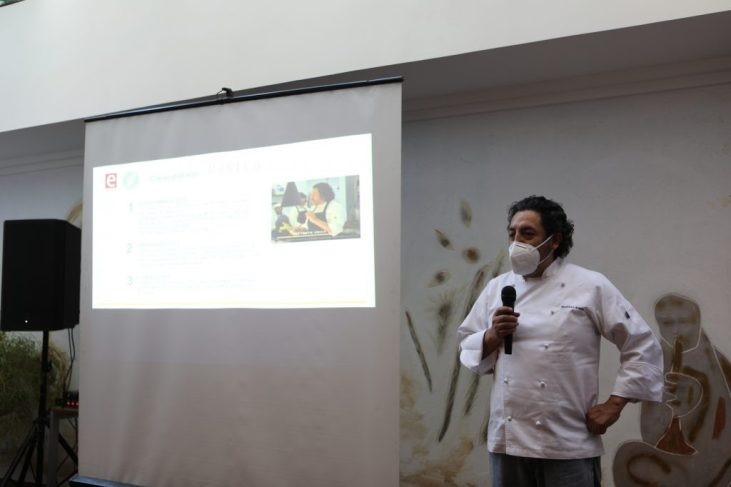
Mauricio Acuña, chef and representative of Espai Epicur, discussed the gastronomic components of the project.
Environmental Component
According to the MAATE, the project will strengthen community bioentrepreneurship as initiatives for the sustainable use of biodiversity in the Yasuní Biosphere Reserve, Yasuní National Park, Cuyabeno Fauna Production Reserve, Limoncocha Biological Reserve, and their respective areas of influence, including the area west of the Yasuní Biosphere Reserve towards the border of the Sumaco Biosphere Reserve.
It is important to note that since 2006, the PPD Scholarship Fund was created, aiming to bring university youth closer to rural reality and provide a space for them to contribute to and strengthen the sustainable livelihoods of rural communities.
More Information About the Project
Check out the latest updates on the extensive agenda carried out by Fundación Raíz Ecuador within the framework of this project.
